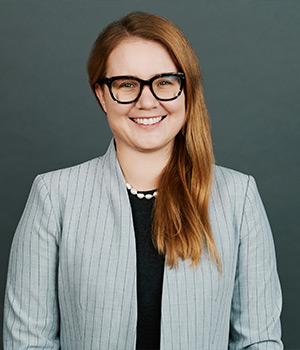PANEL DISCUSSION
Scott Roos, Acuity Brands | Leela Shanker, WAP Sustainability Consulting | Alexandra Christiana, HMFH Architects
Location: Nassau
WednesdayMarch 19, 2025
2:30 pm - 4:00 pm EST
Credits 1.5 LU | HSW
Introductory
Lighting practitioners can have a tangible, positive impact on the environment. Opportunities and gaps for making a real difference beyond a simple “check the box” mentality are becoming clearer. The subject matter experts on this panel will share insights they have gained from working at the forefront of sustainable lighting to help the audience understand what they can do now to make real difference, and the challenges that lay ahead for us to move the industry to the next level of impact. This spirited discussion will challenge your assumptions and bring new insights into the critical topic of our time!
Basic understanding of lighting and applied lighting design is helpful.
Learning Objectives
- Gain a deeper understanding of the relative environmental impacts from the materials, design, manufacturing, use and end-of-life treatment of luminaires…and how our ability to reduce them will most likely evolve.
- Understand the nuances behind material transparency labeling and life cycle assessments, what they tell us about how to truly minimize the environmental impact of the luminaires we design, manufacture & specify and the challenges to scaling these in a meaningful way.
- Understand the benefits and limitations of simpler sustainability metrics (e.g., TM65 embodied carbon calculations and TM66 Circular Economy assessments) vs. more comprehensive Life Cycle Assessments/EPDs.
- Be able to immediately apply learnings to your practice to reduce the impact of the luminaires you design, specify and apply and how to best advocate for positive industry change going forward.
Speakers

Scott Roos is the Vice President, Sustainability and Business Optimization, Specialty Lighting Group at Acuity Brands. 2024 marks Scott's 46th year in lighting, a career that has encompassed product design, marketing, product management, strategic planning and lighting education. Products Scott has worked on have earned numerous patents and awards including the Industrial Design Excellence Award and LightFair's Most Innovative Product and Technical Innovation awards. He has also developed the concepts and lighting design for numerous facilities, showrooms and tradeshow booths including the acclaimed Des Plaines, IL Center for Light and Space.
Scott has always been involved in pushing the envelope for critical topics of the time, from developing the first miniature low voltage accent lighting fixtures and systems in the 80’s to helping advance CFL general illumination downlighting in the 90s to driving the development of the first commercially viable LED track and recessed solutions in the early 2000s. Most recently Scott has been a grain of sand in the oyster to encourage us to embrace wellness and sustainability as fundamental elements of good lighting and has been a regular speaker on both topics at national and regional industry events.
He is currently serving as a member of the IES Sustainability Committee, which is updating the LP10 Sustainable Lighting Practice document, the NEMA Lighting Sustainability Task Force, the International Electrotechnical Committee (IEC) addressing the Environmental Aspects of Lighting and with Smart EPD to develop Product Category Rules for conducting luminaire Life Cycle Assessments in North America.
Scott has a BFA in Industrial Design from the University of Illinois and an MBA from De Paul University.

Leela Shanker leads the Design Lab with WAP Sustainability. Synthesizing architectural design, sustainability analytical frameworks and speculative material investigations, the Lab implements strategies that progress decarbonization, circularity and material health in the built environment. Based in New York, with collaborators globally, Shanker and WAP's team develop pilot initiatives between leading stakeholders from design, manufacturing and real estate.
Through the GreenLight Alliance - an international network of lighting professionals progressing industry-led standards, research and advocacy - she founded the Lighting Industry Life Cycle Assessment Incubator while practicing as a lighting designer with consulting engineering firm BR+A. She holds a M.Arch (Hons) and MFA - Lighting Design from Parsons School of Design and Bachelors of Law and Commerce from Sydney University.
Shanker continues to advise the Pacific Northwest National Laboratory (U.S. Department of Energy) as technical expert to their Life Cycle Assessment and light research team and is a Steering Committee member of the American Institute of Architects’ Decarbonization Subcommittee and Carbon Leadership Forum NY chapters.
As Founder of non-profit, Flint Collective NYC Inc, her work has been awarded by the IES with a Special Citation for Lighting as a Tool for Social Impact. She is a current member of the Social Architecture track of the New Museum’s NEW INC incubator.

Alexandra Christiana WELL AP, LEED AP BD+C, LFA, is an architect and sustainability leader at HMFH Architects, where her passion for building performance and knowledge of lighting design has made her crucial to projects at every stage. Providing integral support to project teams, Christiana uses her skillsets to push sustainable initiatives and assist in problem solving for complex designs. Her commitment to promoting student wellness is reflected in her daylight and energy modeling, as well as her research into healthy material options and embodied carbon. With a background in energy consumption and voluntary building standards, Christiana holds a Master of Science in Environmental Design of Buildings from Cardiff University in Wales and a Master of Architecture from the Rhode Island School of Design.
